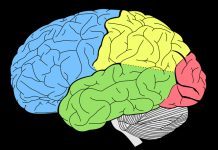The brain receives blood flow from two major arteries namely the carotid (The vein doctors use to feel pulse near the neck) and vertebral (This vein passes through the spinal cord) arteries. Any damage or lack of blood flow to the brain from these arteries can reduce the oxygen supply to the brain leading to complications.
Cerebrovascular Disease Symptoms
The supply of blood to the brain can be affected due to several reasons. Here are the different types of cerebrovascular diseases:
Cerebrovascular Stenosis
Fat deposits in these arteries, commonly known as plaque, can block blood flow. This increases the risks of thrombosis (blood clots).
Stenosis symptoms don’t exhibit unless the plaque has developed enough to cause an ischemic attack or stroke. The common symptoms are:
- Nausea and vomiting
- Severe headache (Unusual)
- Dizziness, memory loss, inability to comprehend, confusion, and disorientation.
- Numbness across the limbs and face. The face may droop to one side.
- Loss of motor skills, coordination, speech and vision
Cerebral Aneurysm
Damaged arteries that are weak and swollen will lead to haemorrhages. Neurologists say small aneurysms are usually symptomless and cannot be identified without testing for one. The large ones cause headaches near the nerves by exerting pressure. They may also cause:
- Sensitivity to light and vision damage
- Numb limbs and weakness
- Fainting, memory loss, seizures
A ruptured artery will cause:
- Head and neck aches
- Faster heartbeats
- Low pressure
- Nausea, vomiting, and Dizziness
Cerebrovascular Malformations
A cerebrovascular disorder that occurs due to malformation of blood vessels in the brain. Seizures and severe headaches are the usual symptoms.
Cerebrovascular Disease Causes
The common causes of cerebrovascular disease are:
- Diabetes
- High blood pressure
- High cholesterol
- Consumption of toxic substances
- Obesity and inactivity
Cerebrovascular Disease Pathophysiology
Ischemic cerebrovascular attack, vascular dementia, stroke and focal brain dysfunction are pathophysiological to cerebrovascular accidents. While trans ischemic attacks don’t cause permanent damage, vascular diseases and stroke affect the brain permanently.
Treatment for Cerebrovascular Disease
Cerebrovascular accidents are usually diagnosed through angiograms, ultrasounds, CT, EEG, MRI, MRA, or lumbar puncture. Treatment for cerebrovascular accidents primarily depends on the intensity of the disease. The common treatments are:
- Lifestyle changes
- Managed diet
- Medication
- Surgery
Cerebrovascular accidents can be prevented by routine check-ups. Surgery usually requires patients to stay in the hospital for 6-7 days or more depending on their overall health.


















